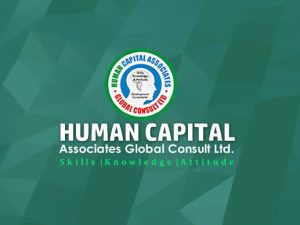The Project Management Course: (Practical and Effective Management Techniques for the Successful Project Managers)
March 4 – 8, 2024, 1st Run: Lagos & Port Harcourt
September 2 – 6, 2024, 2nd Run: Lagos & Abuja
For Tutor -Led Class: 9am – 4:30pm
Workshop fee: N250, 000 per Participant
For online: Delivery via Zoom
Online course fee: N200, 000 per Participant
Available for In-plant Training
Program Overview:
As organizational managers, it is important to build a climate that supports effective project management practices: accurate and useful estimates, accelerated delivery, project partnerships, and emphasis on quality, alternatives analysis, and two-way communication. You can further support that climate with consistent methods and improved tools for project estimating and project management.
This workshop builds upon the current edition of the PMBOK® Guide, and uses additional resources to guide managers on multiple projects. It will equally help participants understand the steps needed to improve their organization’s project management.
For Whom:
This program is designed for managers and senior executives who are managing or leading one or more projects, project team member, leaders and those who need practical project management tool kit. Those preparing for PMP certification will find this course helpful.
Learning Objectives:
At the end of this program, participants will be able to:
- diagnose the uniqueness of every project
- establish clear and realistic objectives for project management
- break complex project into bite-size pieces
- motivate project team to achieve result
- evaluate resources such as skills, abilities and commitment of personnel associated with project tasks
- implement monitoring and control systems; and
- deal effectively with changes to project plan.
Course Outline:
Day 1: Introduction, Definition and Context of Project Management
- Project management vs. General Management
- The Project Management Institute (PMI) BOK
- The Project Management Processes
- Integrating Project with the organization
Project Management Life Cycle
- The Project Life Cycle
- Phases
- Characteristics
- Life cycle trends
- Initiating, Planning, Executing, Controlling and Closing
Day 2: Project Selection, Initiation and Team Formation
- Project Selection Questions
- Selection models
- Business and Project requirements
- Building a Project Team
- Identifying, documenting and assigning roles, responsibilities & reporting relationships
- Team charter development
- Project Scope Planning & Work breakdown
- Establishing boundaries & writing objectives
- Business product
- Project objectives
- Creating a scope document
- Definition and purpose of work breakdown structure (WBS)
- Alternate format of the WBS
Day 3: Successful Task Sequencing
- Definition of task dependency
- Types of procedure relationships
- Fast tracking – overlapping phases
- Task diagraming techniques
Project Estimating
- What are we estimating?
- Work effort and duration
- 5 Estimating techniques
- PERT BETA formula
- SWAG or PFA
- Narrow band Delphi
- Group exercises and lesson learned
- Object based formula
- Estimating compensators
- Estimating tips and traps
Day 4: Critical Path Analysis
- How do we use critical path analysis in managing projects?
- Demonstration of a critical path calculation
- Early start and late start scheduling using software
- Crashing the schedule
Resource Planning and Budgeting
- Identify required skill sets
- Identify resource capability
- Using a skills inventory matrix
- Negotiate for and allocate resources
- Verify effort and duration estimates
Day 5: Project Risk & Quality Management
- Risk and the project life cycles
- Risk identification, quantification,
response development & control
- Strategic vs. operational risk
- Quality concepts
- Conformance vs. non-conformance
Project Monitoring, Control & Evaluation
- PM Control interfaces
- Monitoring time, cost, scope & quality
- Meeting management
Leadership Skills in Action
- Leadership vs. Management
- Motivational strategies
- Authority and power to act
- Conflict management and resolution
- Negotiation and communication strategies
Training Methodology
Lectures, discussions, exercises, and case studies will be used to reinforce these teaching/learning methods.
Related Courses






